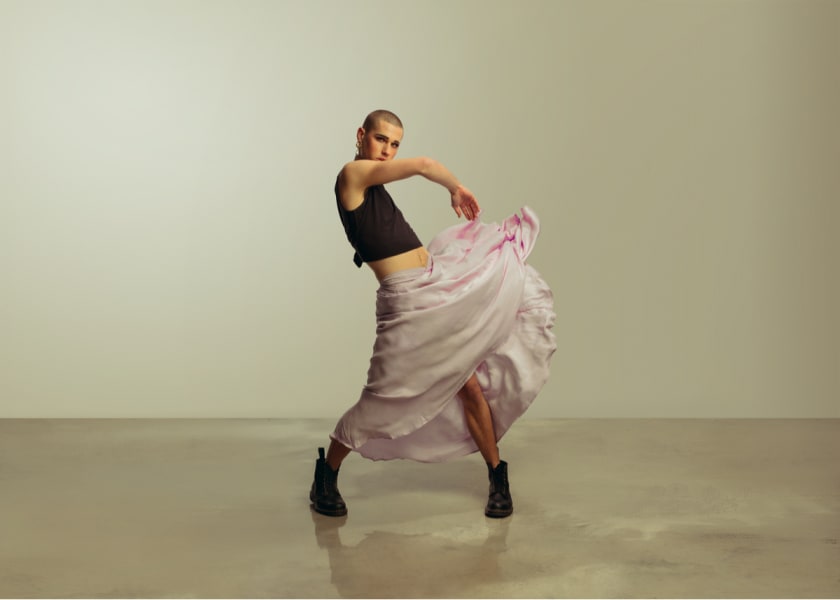5 Brands That Are Responding to The Demand for Gender-Neutral Clothing



The attempt to break gender stereotypes is nothing new. We had Marlene Dietrich shocking the world by wearing her infamous Tuxedo in 1932. A similar effect is felt in 2020 when Harry Styles rocked the December Vogue with his skirts. How gorgeous they both looked! Their footprint is crystal clear. Outfits can have no gender. It’s high time we learn the non-binary language.
The brands are adapting.
The past few years have been groundbreaking with years of revolutions gradually paying off. Thanks to the voices that normalized breaking stereotypes. The binary clothing is now a thing of the past. Most people now do not believe in the constraints of the binary model of life anymore. Long before today, eschewing labels and a fluid approach to life have been trending among the Millennials and GenZs. The fashion industry has been all ears to this movement and has made many efforts towards inclusivity.
‘Unisex’ or ‘Gender Neutral’ is a common buzzword in the fashion industry for some time now. The line between traditional masculine and feminine is blurred enough to ignore the gender construct as a whole. GenZs especially feel like wearing what they feel comfortable in. Some retailers are yet to catch up with this trend but genderless shopping is gaining acceleration. Gucci MX, the genderless shopping section was a huge success. Beyonce’s Ivy Park x Addidas collaboration launched a gender-neutral collection much to the joy of the consumers. These are only a few examples of the success stories of going genderless in approach. We can imagine what the future holds for us.
Here we have some brands and retailers that have quickly responded to this shift :
1. Kirrin Finch :
A Brooklyn-based brand that wants to ‘do good in this world’. Launched by the couple Laura Moffat and Kelly Sanders Moffat in 2015, the mission is to create some gender-defying fashion to cater to androgenous demands. They have a menswear-inspired range designed for female and non-binary bodies. The name of their brand is inspired by the fictional ‘Georgiana Kirrin’ and ‘Scout Finch’, the tomboys from The Famous Five and To Kill a Mockingbird respectively. Sustainability is one of the core principles of Kirrin Finch.
2. PacSun
PacSun acknowledged the generational movement of less rule and more options by opening up a unisex shopping zone in 2020. The curated selection aims to explore inclusivity, diversity, and individual expressions. The unisex basic tees have gained popularity for everyday casual wear. The versatile gender-neutral cargo, slim-fit pants, and joggers have made a mark amongst the shoppers.
3. Tomboy X
The brand was launched by two tomboys, Fran and Naomi in an attempt to fill up the void created by stereotyping. Tomboy X specializes in making underwear to fit all kinds of bodies. Working for gender inclusivity since 2012, the brand designs masculine cut underwear fit for women’s bodies. For example, they make boxer briefs and trunks suited to feminine needs by removing the excess fabric. The quality of the products is top-notch and most comfortable. Besides undergarments, they have a collection of apparel and swimwear.
4. Riley Studio
Their mission is to create a gender-neutral wardrobe that is ‘kind on the planet’. Their mind-blowing creations focus on individuality that is indifferent to gender. Everybody has the right to style irrespective of gender constructs. Their collection includes apparel, accessories, and bags. They feel personally responsible for the safety of the planet. The aim to reduce overproduction and waste. The sustainable approach is a hallmark of the brand.
5. Nordstrom
Nordstrom’s in-house brand BP joined hands with the brand Wildfang to launch a genderfluid collection. The collection features jumpsuits, button-ups, graphic tees, blazers, and accessories. The BP and Wildfang team has spent 18 months together to come up with this unique collection. The partnership has been exemplary, not for how well they worked together, but for all the inputs dedicated to smashing genders. Some worth mentioning is gender knowledge for the employees, thorough research on genderless shopping, and social responsibility.
Conclusion
The fashion industry has never fallen short of initiatives to satisfy customer needs. Fulfilling social responsibility while doing business comes as part of the many fashion endeavours. We are yet to witness a complete overhaul of the traditionally flawed and restrictive gender norms. But we have many brands on the roll now, setting themselves up for genderless experiences. We can hope for a genderless future in fashion.



















